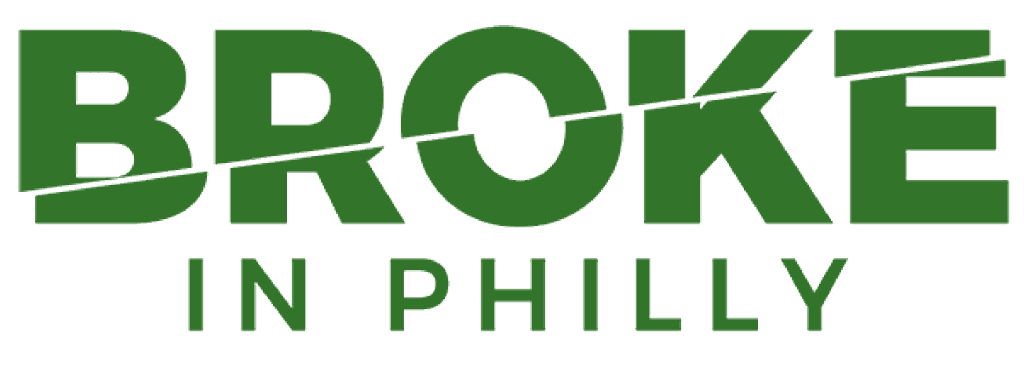Nearly a week of citywide curfews, closures, and general commotion have created new challenges for people experiencing homelessness and the outreach workers who serve them.
Mayor Jim Kenney first implemented the curfew through an emergency executive order last Saturday in response to violence and property damage that followed peaceful demonstrations over the death of George Floyd, a Black man killed by a white police officer in Minneapolis on May 25.
But for people experiencing homelessness, especially those who are unsheltered, the curfew creates some obvious challenges.
“With the curfew, what you’re doing is telling people to go home,” said Kate Perch, the housing director at Prevention Point, a homelessness service provider and harm reduction organization on Kensington Avenue. “How do people who don’t have somewhere to go abide by that policy?”
The emergency order states that people experiencing homelessness are exempt from the curfew and will not be arrested if they are outside while the curfew is in effect. However, when asked how the Philadelphia police determine whether someone is experiencing homelessness, they didn’t have a clear answer.
“Trying to determine who is and who isn’t [experiencing homelessness] is a bit tough because people can say they are, but you don’t necessarily know,” said Capt. Sekou Kinebrew, a police spokesman. “It’s kind of tough, though — you see the conundrum. If someone is, in fact, homeless, where are we telling them to go?”
According to Perch, some people who use Prevention Point’s services said that they were tear-gassed by police for breaking curfew on Sunday night. While Perch said that she could not provide any more details on the situation because she and other staff members were not there, she added that the lack of their presence is part of the problem.
“Sunday night was when we got the most intense reports of tear gas and other more aggressive tactics,” Perch said. “Unfortunately, a lot of our staff are abiding by the curfew, so we haven’t been able to be out and see what’s happening.”
According to Father Michael Duffy, who runs the St. Francis Inn on Kensington Avenue south of Lehigh, the police presence has been scarce to none since the curfew was implemented. Law enforcement has not asked the people sleeping along Haggard Street and Kensington Avenue to move since the curfews started, Duffy said.
At Friday’s press briefing, Police Commissioner Danielle Outlaw said that she was aware of several videos showing the use of force by police officers. The videos, Outlaw said, depicted some behavior that appears to be within their department’s guidelines, and some “disturbing” behavior that falls outside of their guidelines. The police department is now conducting several internal investigations to look into these incidents, she said.
A total of 492 people have been arrested on code violations for the curfew since Saturday, Outlaw said during Friday’s press conference. Another curfew will begin Friday at 8 p.m.
In Center City, Project HOME outreach worker Edward Dover said the people he serves have been largely unaffected by the curfew.
“They put their curfew out, I think, just to scare people,” Dover said. “But they haven’t been saying anything to me.”
Dover also works with Station House to transport people to and from shelters in the evening around 3 p.m. to 5 p.m. and in the morning around 5 a.m. When dropping people off, he said some have voiced concerns about police harassment for breaking the curfew. However, he has not directly witnessed this happening, he said.
SEPTA shutdowns, other restrictions, and general commotion limit outreach work
According to several outreach workers, the unpredictability of new regulations issued over the past few days has impacted their ability to provide direct services.
Factors like SEPTA shutdowns — such as the one on Monday, which started at noon and was announced less than 15 minutes before being implemented — prevent places like the Hub of Hope, a daytime respite in Center City that is run by Project HOME, from operating on their normal schedule.
“We’ve been maintaining services through the pandemic, but everything is so unpredictable right now,” said Eliza Mongeau, the assistant program manager at the Hub of Hope. “It’s really more about the unrest in the city… If we had been open [Monday], our staff would have been stranded.”
The Hub of Hope has been closed since Monday and outreach workers have been connecting with people on foot during a three-hour window in the mornings instead. During their rounds, they deliver supplies like meals, hygiene kits, face masks, and hand sanitizer, Mongeau said.
On Tuesday and Wednesday, the Hub of Hope’s medical team also administered wound care to those in need and delivered prescription medications to their regular guests, Mongeau added. They hope to open next week, but they’re playing things by ear.
“The National Guard is literally right outside our door,” Mongeau said. “They’re taking over JFK.”
According to Mongeau, road closures and general commotion have also caused some of the people they serve to move away from areas near the municipal buildings and instead go to Love Park or further down the Parkway.
Prevention Point is also operating on a limited schedule after suspending all services except for their housing services on Monday. They brought some of their services back this week and hope to provide all of their services soon, Perch said. But SEPTA shutdowns and a fire under a section of the Market-Frankford Line in Kensington has posed challenges for their staff who ride the subway to work.
“Getting staff to and from work when there’s a curfew can be more difficult than getting staff to and from work in a pandemic,” Perch said.
Before the protests, both Hub of Hope and Prevention Point were already providing limited services due to COVID-19. But while they learned to adjust under COVID-19 regulations, this situation feels different, Mongeau said.
“With the virus, it’s something that we can handle because it’s more predictable,” Mongeau said. “A protest and so many people congregating — that’s out of our hands. So it’s really an entirely different situation.”
Kensington Voice is one of more than 20 news organizations producing Broke in Philly, a collaborative reporting project on economic mobility. Read more at brokeinphilly.org or follow on Twitter at @BrokeInPhilly.
Editor: Jillian Bauer-Reese / Designer: Jillian Bauer-Reese / Translator: N/A













